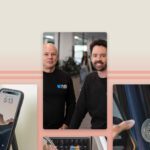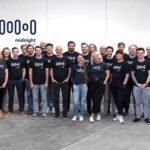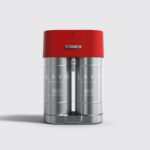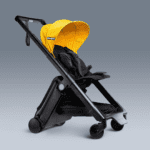Venture snapshot: down but not out

Welcome to Ignition Lane’s Wrap, where they cut through the noise to bring you their favourite insights from the technology and startup world. You can subscribe for free today.
Down. A leaked investor update this week revealed that Square Peg has written down the valuation of Funds 1, 2 and 3 by about 15%. It’s safe to assume other VCs are busy doing the same.
The update also confirmed that Square Peg has “slowed the cadence of investing in both new and existing portfolio companies” – a strategy that Blackbird’s Niki Scevak doesn’t agree with (more in thread):
The problem for an investor slowing down in 2022 is that it burdens you with a commitment to determining a level of pacing. Besides a high likelihood of not buying low, there is a mental load that endangers good, fundamental investment decision-making.
Niki Scevak, Partner at Blackbird Ventures and Co-Founder at Startmate
The data, however, aligns with Square Peg’s sentiment. Startup investment last month was down 52% compared to the same time last year, according to Cut Through Venture. June saw $408.6m invested across 44 deals, bringing the total raised in Q2 to $1.23bn (for context, $1.6bn was raised in Feb alone).
Recognising it’s not a great time to be raising, there have been a number of layoffs at venture-backed companies as they reduce burn rates to extend runway.
Sadly, the casualties have started, too. Neobank Volt was forced to close after struggling to raise sufficient capital (class action lawyers are now circling). Zip shut down money management app Pocketbook.
On the bright side, this means startups will have a better chance at recruiting great talent.
But not out! Fear not, it’s not all doom and gloom. There’s still solid early and mid-stage raising activity. A few picks this month:
- mx51 raised $32.5m for its white-label bank-grade Payments as a Service platform.
- Hivery, an “optimisation platform” for retailers, raised US$30m led by Tiger Global.
- Quantifi Photonics raised US$15m led by Intel for its high-density photonics test and measurement solutions.
- FileInvite raised NZ$10m led by Icehouse Ventures for its document collection platform.
- Business insurance startup Upcover raised $2.7m equity and $2m debt.
- BlendAI, which simplifies and centralises online advertising for ecommerce stores, raised $1.5m led by EVP.
Plus, new money is flowing into the ecosystem, with Archangel Ventures raising $25m for its seed-stage fund, and Silicon Valley-based SVG Ventures launching a $50m AgTech fund for ANZ.
Add to the mix well-established VCs currently raising new funds—Tidal, Blackbird, Square Peg, OIF and OneVentures—and there will continue to be plenty of dry powder to deploy. The future still looks bright.
If you’re thinking of raising capital at some point, but don’t have any investors in your network, consider applying to attend Rampersand’s Giant Warm Intro. Applications close on Wednesday 27 July.
Local newsings
Inspo. The Australian released The List: Innovators 2022. Lots of inspiring leaders, including the professors creating complex beating three-dimensional heart tissues from stem cells, revolutionising recycling science – turning old tyres into steel, and using lasers to achieve world-first hydrogen nuclear fusion, which could be an answer to clean energy generation.
Get into gaming. Australia’s Digital Games Tax Offset came into effect this month, providing game developers a 30% tax offset. Globally, 2022 is shaping up to be the hottest year in gaming, according to a new Drake Star Partners report. 1H 2022 has seen more than 651 M&A and investment deals announced or closed with a value more than US$107bn. We’ve also seen multiple new gaming-focussed funds announced recently, including Sydney-based Immutable, a16z (which led Melbourne-based Lumi Interactive’s $10m seed round), Binance, and Konvoy Ventures.
An unlikely pairing. The Transport Workers’ Union and Uber agreed to support the creation of an independent umpire to apply greater worker protections for Uber’s 100,000+ gig workers, including a guaranteed minimum earnings “safety net.”
Why now? Uber knows regulation is looming under the new government. This partnership gives it a front foot when pushing its own agenda (whistleblower documents leaked last week show Uber excels at lobbying). It also means Uber can avoid further lawsuits and uncertainty around whether drivers are “employees” or “contractors”. In return, the Union can represent gig workers – a right that has been under threat.
Mass (market retail) surveillance. Bunnings, Kmart and the Good Guys could be in hot water with the privacy regulator for their use of facial recognition tech on customers.
Sydney is hosting SXSW in October 2023. This will be the first time in its 36-year history that the tech, film, music and arts festival will be held outside of the US.
Not tech but Melbourne’s Starward Whisky won top honours at the 2022 San Francisco World Spirits Competition, named Most Awarded Distillery of the Year.
Deals & Anti-Deals
Charging ahead. A group of Aussie motoring clubs acquired Australia’s biggest electric vehicle charging network, Chargefox, in a deal that values the business at $56m. The clubs plan to double the number of fast-charging plugs across the country to 5,000 over the next three years to meet soaring demand. This comes as the ACT Government announced that the sale of new fossil fuel-burning cars will be banned from 2035.
Money moves. Australian payments automation provider Monoova is merging with Moneytech FX. Over the past five years, Monoova says it has moved about $50bn through its platform, serving the likes of Jacaranda, Hnry and Wise. Moneytech FX has transferred about $12bn over the last 18 months.
Pay Now, Buy Never. Zip and Sezzle are terminating their merger agreement due to rising interest rates and lower consumer spending. The all-stock deal initially valued Sezzle at AU$491m. Instead Zip will pay Sezzle AU$16m. BNPL ain’t looking pretty – Klarna’s US$800m raise saw its valuation drop 85% to US$6.7bn.
Comment of the week: Adir Shiffman on ANZ’s rumoured acquisition of MYOB (not happening):
The most remarkable part of the MYOB plan was the $4.5 billion price, which had the investment bankers partying like its 2021 and whispering to one another, in their best Basil Fawlty accents: “Don’t mention the Nasdaq”.
MYOB’s current owner KKR acquired MYOB for around $2bn in 2019.
In the global capital markets
Figures in USD
QVC for the kids. YouTube and Shopify have partnered to allow Shopify merchants to integrate their online stores with their YouTube livestreams, videos and store tab. TikTok, Facebook, Pinterest, and eBay have introduced similar features, too. Live shopping is popular in countries like China, but it hasn’t yet taken off in the US or Europe.
Snaps not good enough. Snap’s revenue increased just 13% in Q2, well short of its original 20-25% guidance. Its net loss grew to $422m from $152m in the same period last year. Snap said that brands were slashing digital advertising budgets, plus privacy changes by Apple have made it harder to target advertising and measure the success of campaigns. Snap will “substantially reduce” hiring and revise its strategy. The news sent Snap’s stock plummeting 26% in after-hours trading.
Hot chips. Dutch semiconductor equipment supplier ASML is seeing extraordinary demand for its chipmaking machines, reporting a record €8.5bn (AU$12.5bn) in bookings and €5.4bn (AU$8bn) in revenue last quarter. China made up 10% of that revenue, but now the US is pushing the Netherlands to ban ASML from selling to China in an attempt to thwart China’s plans to become a world leader in chip production.
One click medicine. Amazon continues on its mission to break into US healthcare, this week announcing plans to acquire One Medical for $3.9bn – its third largest acquisition. One Medical offers telehealth and in-person doctors consultations. Amazon launched its own digital healthcare service, Amazon Care, almost three years ago.
Driving growth. Tesla beat expectations in Q2 with $2.26bn in profit. Total revenue grew 42% YoY to $16.9bn. Automotive margins decreased, impacted by inflation and more competition for battery cells and other EV components – margins were 27.9%, down from 32.9% last quarter and 28.4% a year ago. Cash flows would have actually been negative without the sale of 75% of its Bitcoin position ($936m). More analysis here.
That’s a wrap! We hope you enjoyed it.
Bex, Gavin and the team at Ignition Lane
–
Gavin and Bex make it their business to know everything going on in technology, startups and venture capital.
Gavin is the Founder and CEO of Ignition Lane. He has 25 years of experience in the technology industry across startups, corporates and venture capital. Gavin was a founding Partner at venture capital firm Square Peg, an SVP of Product and Technology at Experian, and was one of the first employees and CTO at Hitwise – a venture-backed startup that was acquired for US$240m in 2007.
Bex is a founding Partner at Ignition Lane. Driven by curiosity, her career is the epitome of unconventional – spanning technology commercialisation and operations, corporate law, IT delivery and more. Applying this unique mix of skills and experience, she now works with CEOs and their teams to solve problems, drive growth and move beyond the status quo.



Related posts

Visionary Behind the Bionic Ear Honoured in 2024 Pause Awards Hall of Fame
3 December, 2024

Australia’s boldest innovators announced and new chapter for 2025
3 December, 2024

Top five winners score the most invaluable encounter
19 November, 2024

How Ally Watson is pioneering tech careers for women
15 November, 2024

Breakthrough Insights, Strategies, Creativity and Culture for now
12 November, 2024

Life lessons on ownership and how to keep creative control
6 November, 2024

How to unlock the intangible in brand equity with 4P’s
29 October, 2024

Discover trailblazing Finalists of Pause Awards 2024 in Australia
28 October, 2024

Why Bunnings feels like home: trust, community and genuine care
23 October, 2024

Why creativity and imagination will save the world
22 October, 2024

How Canva transformed a simple idea to become global leader
15 October, 2024

How NASA’s new AR tech will take astronauts to the next frontier
11 October, 2024

How to build authentic workplace culture
7 October, 2024

How to balance business growth with personal wealth
24 September, 2024

A time to dream big with Kristina Karlsson
16 September, 2024

The purpose of gatekeepers in authentic brand storytelling
6 September, 2024

It’s here, a final call to enter the Pause Awards this year
3 September, 2024

Join a free 7-week online learning on the go
3 September, 2024

Pause Awards partners with Ticker for exclusive broadcast coverage
6 August, 2024

Calling Melbourne — a significant player to enter!
6 August, 2024

Calling Hobart — an emerging hub to enter!
26 July, 2024

Calling Canberra — with most daring new ideas to enter!
16 July, 2024

Meet final judges and why they love Pause Awards
15 July, 2024

Meet even more judges and why they love Pause Awards
8 July, 2024

Meet more judges and why they love Pause Awards
5 July, 2024

Calling Adelaide — dynamic centre for innovation to enter
4 July, 2024

Meet the judges and why they love Pause Awards
1 July, 2024

Maybe those shouldn’t have been there in the first place
27 June, 2024

Calling Perth — an emerging innovator to enter!
25 June, 2024

Read a thrilling mid year predictions by the judges
24 June, 2024

Jasmine Batra’s Breakthrough Moment
24 June, 2024

WithYouWithMe’s Breakthrough Moment
24 June, 2024

Paz Pisarski’s Breakthrough Moment
20 June, 2024

UpStock’s Breakthrough Moment
20 June, 2024

Calling Brisbane — a rising star to enter!
19 June, 2024

How to choose the right category for the Pause Awards?
17 June, 2024

Success stories of past Pause winners
17 June, 2024

Your guide to the Pause Awards entry process
17 June, 2024

Understanding the breakthrough question
17 June, 2024

Top 10 tips on how to enter Pause Awards
17 June, 2024

Calling Sydney — a powerhouse of opportunity to enter!
6 June, 2024

Inke’s Breakthrough Moment
6 June, 2024

ReSource’s Breakthrough Moment
3 June, 2024

Brittany Garbutt’s exchange with Paul Bassat on building and sustaining a business empire
21 May, 2024

Entering Pause Awards for the first time?
21 May, 2024

Inside the Pause Awards 2024: A universe of possibility
14 May, 2024

What’s a Pause Awards breakthrough?
14 May, 2024

Marcella Romero’s Breakthrough Moment
9 May, 2024

Music Health’s Breakthrough Moment
2 May, 2024

Chau Le’s Breakthrough Moment
30 April, 2024

Tanck’s Breakthrough Moment
26 April, 2024

Macro Mike’s Breakthrough Moment
23 April, 2024

Birchal’s Breakthrough Moment
18 April, 2024

Tixel’s Breakthrough Moment
16 April, 2024

Redefining success with Angus and Neil of Tanck
15 April, 2024

Quad Lock’s Breakthrough Moment
12 April, 2024

Origin Energy’s Breakthrough Moment
10 April, 2024

Mel Stubbing’s breakthrough moment
5 April, 2024

Brittany Garbutt’s breakthrough moment
2 April, 2024

InvestorHub’s Breakthrough Moment
28 March, 2024

Kollektive’s Breakthrough Moment
26 March, 2024

Talking robots and AI Agents, two insane demos
25 March, 2024

Fight Club and Zombie VCs
25 March, 2024

WeMoney’s breakthrough moment
20 March, 2024

Addressing gender inequality with 21.7% discount for female-led companies
8 March, 2024

How Entertainment Brands are winning hearts and minds
5 March, 2024

2023 packed a punch
17 January, 2024

The power of relationships with Dom Pym at Pause Awards Night
19 December, 2023

Six years of celebrating the Australian most ambitious innovators
5 December, 2023

M&A green shoots & scandal central
10 November, 2023

Announcing the 63 ambitious finalists, 3 winners and Pause Awards Night
30 October, 2023

Can optimism and curiosity win the battle with Ai
20 October, 2023

Looking at 100 years from now in Solar, EVs and MedTech
20 October, 2023

What does the Australia’s VC landscape look like in 2050
19 October, 2023

Do we want to live in a Black Mirror world?
17 October, 2023

Four new emerging directors envision sustainable future beyond 2050
6 October, 2023

Visible Founders puts a spotlight on migrant entrepreneurs
28 September, 2023

Always be closing & IPO, no?
24 September, 2023

Strong commitment needed to run tech events in Australia revealed at GEC23
24 September, 2023

iPhone 15 event: everything about Apple’s new product line
14 September, 2023

Discover the colourful world of oral hygiene with Dsmile’s new range
13 September, 2023

How to build a company culture in dynamic market
8 September, 2023

The valuable startup lessons hidden in the film Oppenheimer
7 September, 2023

Meet the new addition to the Judging Board ‘23
4 September, 2023

Advice on Design Thinking for stellar product development
1 September, 2023

How Pause Awards can put your brand on the map
30 August, 2023

Seize the moment: New Extended Entry Deadline
30 August, 2023

I got 99 problems
26 August, 2023

Is AI the new frontier of creativity and business
25 August, 2023

Tech legends unite to guide growth and foster innovation
22 August, 2023

The new faces of Pause Awards in business and the product officers
21 August, 2023

Don’t miss out on the last chance to join champions
21 August, 2023

Experience is a new frontier for brands
18 August, 2023

How to grow an idea into a great product
11 August, 2023

Good storytelling and trust will fuel startup and brand growth
4 August, 2023

Twitter to X: a rebrand to challenge tech giants and empower users
4 August, 2023

Discover the latest tech predictions of 2023
1 August, 2023

Elevate your business with Stephen Hunt’s success secrets
31 July, 2023

Lean into digital marketing trends now and in 2024
28 July, 2023

The new faces of Pause Awards from agency and media innovation
25 July, 2023

Hit it, DJ! and other local newsings
24 July, 2023

Female-led ethical fintech Verve raises $3M for Verve Money
21 July, 2023

How to better tune into your success journey
21 July, 2023

Pause Fest’s BREAK–THROUGH SESSIONS will keep you scaling
12 July, 2023

How to choose the right awards for your business
5 July, 2023

The new faces of Pause Awards in strategy and leadership
4 July, 2023

We’re building the community for the most ambitious people
27 June, 2023

It was worth waiting for these unique features
26 June, 2023

Mapping the future of fit and function
23 June, 2023

Midnight Health secures $24 million funding boost
21 June, 2023

Championing breakthroughs in today’s business world
21 June, 2023

OpenAI’s Sam Altman says hai
19 June, 2023

Top 5 compelling reasons why you should enter
18 June, 2023

Pause Awards vs Webby’s, Cannes Lions and Effies
18 June, 2023

The new faces of Pause Awards in startup, product and experience
15 June, 2023

A tour of 11 new categories
12 June, 2023

Inside out of Pause Awards
5 June, 2023

Aim for the Diamond: Understanding the Different Categories
1 June, 2023

The new faces of Pause Awards in strategy, growth and innovation
30 May, 2023

Where business recognition gets a paradigm shift
24 May, 2023

Industry leaders predict a transformative year ahead
17 May, 2023

Pause Awards grows to $412 Billion ecosystem
17 May, 2023

Shaking it up with new Investable Score™
17 May, 2023

Tap into your inner powerhouse
5 May, 2023

Life in the fast (tech) lane
24 April, 2023

evee rides the electric wave
18 April, 2023

Big win for the female-led business Circle In, lands $2 Million
14 April, 2023

Designing global empires:
How local brands can conquer the world
10 April, 2023

A passionate pursuit for Healthcare reinvention
4 April, 2023

The game-changing sessions at SXSW Sydney
30 March, 2023

Top AI tools you need to try now
29 March, 2023

A journey to revolutionising healthy school lunches
28 March, 2023

Panic! at the SVB & metrics that matter
16 March, 2023

Call for Entries
opens on 17 May ‘23
1 March, 2023

Startup funding in decline, but early-stage hits peak in Aus
10 February, 2023

Music for wellbeing:
The healing power of sound
20 January, 2023

Deep dive with ChatGPT about Aussie tech ecosystem
17 January, 2023

How it started; How it’s going 2022
17 December, 2022

Learning from mistakes and how to tackle the upcoming headwind
14 December, 2022

Claiming your PauseNFT trophy
13 December, 2022

Women and purpose led businesses take the most wins at Pause Awards ‘22
6 December, 2022

Professor Fiona Wood – The pioneer of ‘Spray-on-Skin’ technique, ReCell.
6 December, 2022

Rise and Demise
28 November, 2022

Let’s have breakfast with champions?
15 November, 2022

82 Bold Finalists Announced for the Pause Awards ‘22
10 November, 2022

Judge Sessions with Lumigo, Tribal DDB and Clipboard Hospitality
24 October, 2022

Judge Sessions with LongView, Fullstack and Art Processors
20 October, 2022

The first look at the new wearable trophy design
13 October, 2022

The Public Voting is open, go get them!
10 October, 2022

Cash to splash & other VC news
2 October, 2022

The Final Deadline Extended to midnight 14 October
30 September, 2022

Judge Sessions with Wavia, SEIKK and MedTech Actuator
26 September, 2022

Pause Awards Wins Australia’s International Good Design Awards for Design Excellence
19 September, 2022

Judge Sessions with Synergy Group, AOK Creative and i4 Connect
16 September, 2022

A word with Birchal’s Co-Founder – Matt Vitale
6 September, 2022

What can Pause Awards bring to your company
30 August, 2022

Google, Synergy Group, Spaces Interactive, Safari and By Jacs judges for Culture categories
24 August, 2022

Loyal VC, Media.Monks, AOK Creative, Storyfolk and Irene Lemon judges for Good categories
15 August, 2022

Fullstack, Lumigo, Netambition, MedTech Actuator and Unhedged judges for Operators categories
10 August, 2022

A word with Heaps Normal’s Head of Brand – Peter Brennan
9 August, 2022

Tribal DDB, We Are Unity, Bullfrog, BeautifulAgile and The Audacious Agency judges for your Excellence
2 August, 2022

Simply Wall Street, IBM, Forestlyn, CFOWorx and Accenture Song are this year Growth Judges
1 August, 2022

Best equity crowdfunding year in Australia – $86m!
22 July, 2022

How to navigate the awards Entry Portal?
14 July, 2022

Startup Genome ecosystem report 2022 review
10 July, 2022

We’re giving a voice to our community with a stylish newsroom design
10 July, 2022

Professor Martin Green
– The father of solar cells
10 July, 2022

Dr John O’Sullivan
– The inventor of modern WiFi
10 July, 2022

14 New award categories under five tracks to highlight the ecosystem success
5 July, 2022

M&A on the rise & the EV SPAC demise
29 June, 2022

Our new vision:
The home for champions
27 June, 2022

Awards LIVE Briefing and Entry Kit
22 June, 2022

The Porsche of awards programmes with community at its heart
21 June, 2022

The Sheet Society
– Success Stories
17 June, 2022

We’re looking for our final few judges – could you be one?
8 June, 2022

Single Use Ain’t Sexy
– Success Stories
1 June, 2022

Afterpay
– Success Stories
24 May, 2022

This is how we celebrate innovation champions
15 December, 2021

The most ambitious and forward-thinking companies in Australia revealed
24 November, 2021

Pause Awards 2021 Finalists Skyrocket
17 November, 2021

Final Deadline is Looming
1 September, 2021

Get to know:
Carolyn Breeze – Judge
24 August, 2021

Get to know:
Will Hayward – Judge
17 August, 2021

Get to know:
Shamila Gopalan – Judge
10 August, 2021

Get to know:
Tom Leyden – Judge
3 August, 2021

Get to know:
Jules Brooke – Judge
26 July, 2021

Get to know:
Jamie Finnegan – Judge
18 July, 2021

Early Entries end This Week
12 July, 2021

Need Help Entering Pause Awards?
6 July, 2021

2021 Award Category Guide
1 July, 2021

How to Enter The Pause Awards in 7 min?
25 June, 2021

Get to know:
Melanie Rayment – Judge
24 June, 2021

Past winners:
where are they now?
24 June, 2021

Pause Awards 2021 opens for entries
9 June, 2021

New categories revealed for Pause Awards 2021
5 June, 2021

Meet the Judging Board 2021
13 May, 2021

The Reign in the North
1 February, 2021

What went into creating Vincent, a hyper-real digital human
21 January, 2020

Dane O’Shanassy on Patagonia’s moral compass and commercial success
6 November, 2019
Pause index

Hipages Group
Work Sweet Work

Memories Group
Hammer

Circle In
Circular Pioneer

Macro Mike
Hammer, I Wish I'd Done That

TernX
I Wish I'd Done That, Design First

Katura Halleday
Fresh Blood

Upstock
Design First, Down Under

envato
B-Good

Kollektive
Out Of The Garage, Small Team Culture

InvestorHub
Great Pivot

Marketplacer
Hammer


